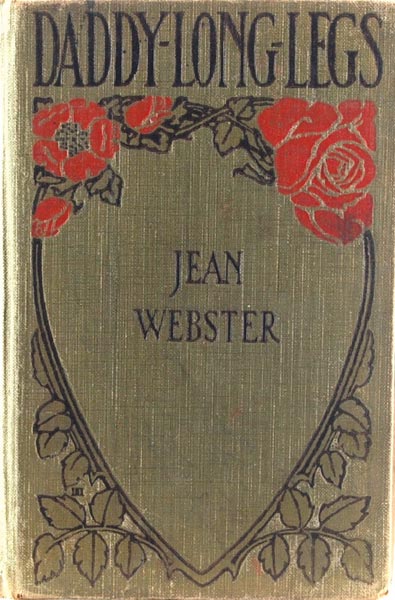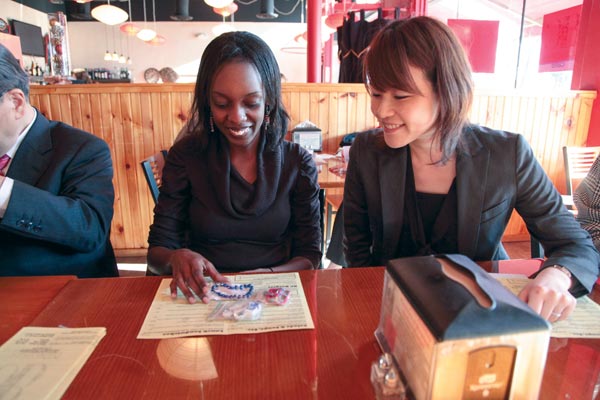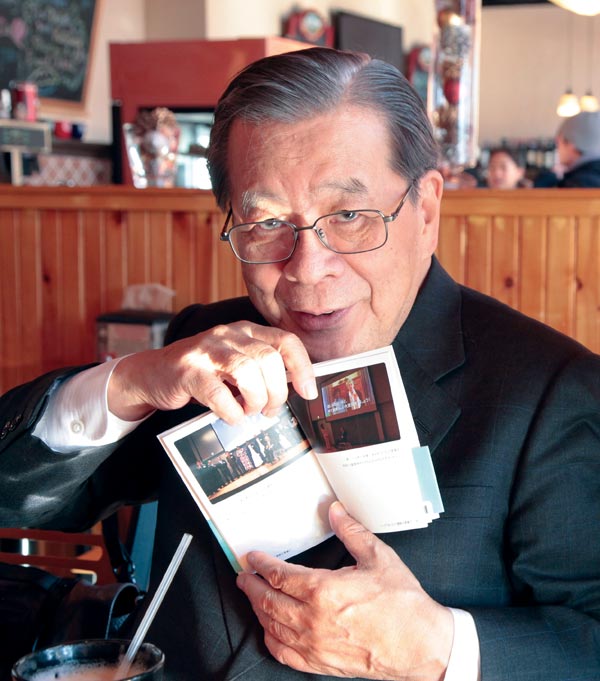The Sweeping Reach of Daddy-Long-Legs

The answer lies with a famous novel written more than 100 years ago by a Vassar alumna—Jean Webster, class of 1901. A decade after her graduation from Vassar, where she frequently contributed stories to the Vassar Miscellany, Webster (whose father had died when she was a teenager) began writing Daddy-Long-Legs, a novel about an orphan girl whose attendance at a women’s college is sponsored by an anonymous benefactor. Published in 1912, Daddy-Long-Legs became a worldwide sensation. The novel was particularly popular in Japan. According to Yoshiomi Tamai, founder and president of Ashinaga, a Tokyo-based organization dedicated to children who have lost parents, “Everyone in Japan knows Daddy-Long-Legs. Every Japanese girl, especially, grew up reading it.” During his own childhood in the 1930s and ’40s, Tamai recalls, “My sister liked to read it, and one time when I got ill, she started reading it to me.”

Fast-forward several decades to 1978. Having lost his beloved mother in a hit-and-run traffic accident, Tamai had become the crusading founder of an organization dedicated to helping orphans. But after several years of operation, his foundation had fallen on hard times: “It was right after the oil shock, and a difficult time financially. We only had enough funding remaining for half a year. I racked my brain for ideas, and nothing was coming. Then, I started remembering back to when my sister used to read me the book, and I began to think of Daddy-Long-Legs—or ‘Ashinaga’ in Japanese—as a symbol of the donor, the anonymous donor. Ashinaga was a symbol that so many people knew and understood.” Once Tamai announced his organization’s new name, he says, “I received telephone calls nonstop for three days.”
With its funding base thus secured, Ashinaga was poised to expand its mission to encompass children who had lost parents to natural disasters, accidents, illness, or suicide. In 1995, the organization came to the assistance of children who had lost one or both parents in a large earthquake that struck the Japanese city of Kobe; it subsequently opened “Rainbow Houses” in both Kobe and Tokyo, where children who have suffered such losses can come for psychological support. A similar house is planned in Tohoku for children orphaned by the Great East Japan Earthquake and subsequent tsunami of 2011.
In a stunning example of “paying it forward,” Tamai says, “The Kobe kids started thinking of orphans everywhere, especially in Africa, where so many children were orphaned by HIV/AIDS.” At their urging, in 2003, Ashinaga built its first Rainbow House outside Japan, in Nansana, near Uganda’s capital of Kampala.

Since then, Ashinaga has reached out, and Vassar has responded to close the circle that started with Jean Webster’s book. President Tamai and Vassar President Catharine Hill met in Japan early last year, and this past December, Tamai and an entourage from Ashinaga made a pilgrimage to the Vassar campus in honor of the centennial of the publication of Daddy-Long-Legs.
And the connections grow as students reach out. Last August, Ritah Nabukenya—an alumna of Ashinaga Uganda (and, thanks to Ashinaga scholarship support, Waseda University in Tokyo)—traveled to Vassar. She conducted research at Vassar as a special fellow, studying human rights in Africa prior to the colonial era.
In the summer of 2012, Contessa Mwedzi ’13, a Vassar student from Zimbabwe, received a Tananbaum Fellowship to travel to Ashinaga Uganda Rainbow House, where she worked with Japanese and Ugandan employees.
President Hill, who now serves on the advisory committee for Ashinaga Uganda, has promised full tuition for any students from the program who are admitted to Vassar, and foremost among Mwedzi’s many assignments was tutoring Ugandan students who hope to apply to the college later this year.
In a comprehensive report on her experience, Mwedzi writes:

I decided to volunteer with Ashinaga because I believe that it is very important to facilitate the dialogue between students in the diaspora and students at home, wherever home may be for some students. … I would like to think that through our interactions, the students also gained an appreciation for the academic rigor, rhythm, and pace of the college and the quality of work that is required of Vassar College students.
As for Yoshiomi Tamai—whose organization has raised an estimated $1 billion to support the education of some 90,000 young people over the past 40 years—he shows no signs of slowing down at the age of 78. His latest project involves a “100-year vision—to select one student who has potential and ambition each year from each of the Sub-Saharan African countries [49 in all] to attend universities in the United States. After 10 years, we would have 500 such leaders. And we would continue that for 100 years. It might not sound realistic, but it would provide Africa with the kind of leaders who are needed to face the challenges there.”
And where in the U.S. should they attend college? “The first Ashinaga scholar from Africa in the United States should be at Vassar,” he says with a smile. “Maybe next year.”